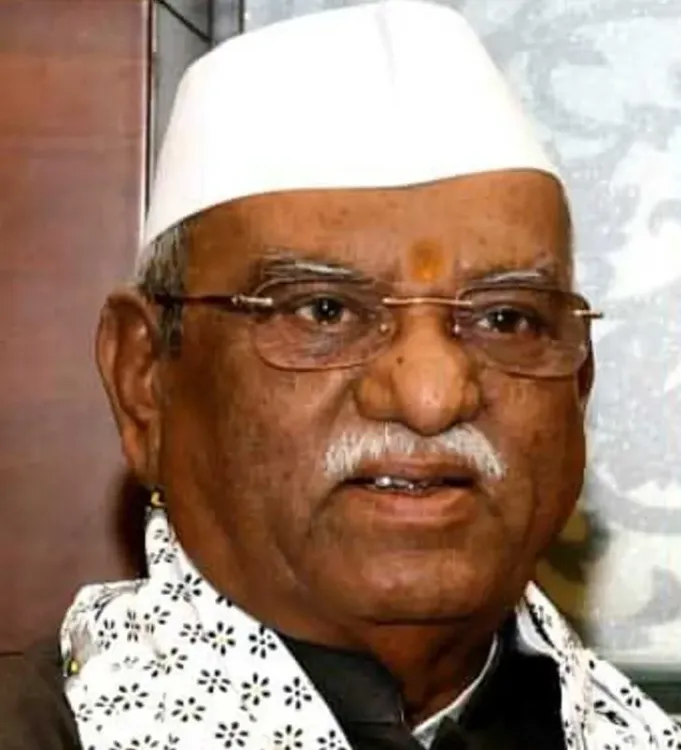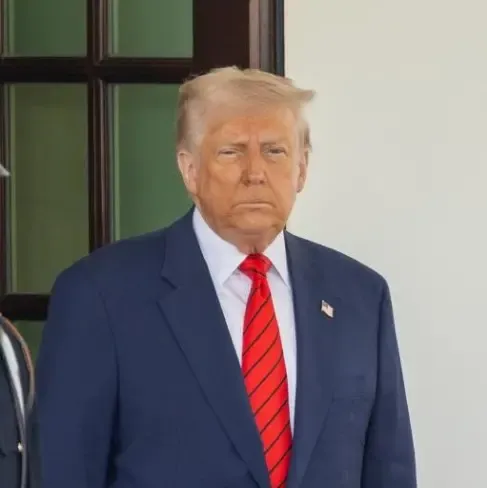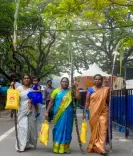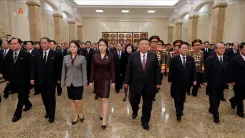How Can Welfare Scheme Benefits Reach Every Eligible Citizen?

Synopsis
Key Takeaways
- Welfare schemes must be timely and effective.
- Education policies should focus on holistic development.
- Women’s empowerment is crucial for economic growth.
- Water conservation efforts are vital for sustainability.
- Engagement of local communities in development is essential.
Jaipur, May 13 (NationPress) Rajasthan Governor Haribhau Bagde stressed the necessity for all developmental projects and welfare initiatives from both the Central and state governments to be accomplished within their designated timelines, ensuring that benefits reach every eligible individual without any delay.
Governor Bagde presided over a departmental review meeting with district-level officials at the Collectorate Auditorium in Alwar’s Mini Secretariat on Tuesday.
He urged officials to approach their duties with sensitivity and responsibility to guarantee the effective execution of public welfare schemes, ensuring that the benefits reach their rightful recipients.
During the review of various departmental progress, Governor Bagde directed the Education Department to provide training for teachers on the provisions of the New Education Policy (NEP). He highlighted the importance of improving students’ intellectual capabilities alongside their academic learning.
He also recommended enrolling children aged three and above in educational institutions following the NEP guidelines and inquired about measures to reintegrate school dropouts into the education system. Emphasizing India’s vast cultural heritage, he remarked, “Our ancient texts and history are treasure troves of knowledge, and today’s youth can gain immensely from them.”
In reviewing the Jal Jeevan Mission, the Governor instructed officials to formulate an action plan for villages and areas currently excluded from the scheme.
He called for greater attention to be placed on water conservation, pasture development, and plantation initiatives through MNREGA to maintain local water resources in villages.
Concerning the PM Awas Yojana, Governor Bagde stressed the importance of providing housing with toilets to tribal, nomadic, and semi-nomadic communities based on eligibility.
Furthermore, he urged officials to connect remote and smaller settlements with roads under the PM Gram Sadak Yojana and to promote renewable energy use through the PM Kusum Yojana and PM Surya Ghar Yojana by encouraging the installation of solar panels.
“The aim should be not just awareness, but empowerment,” he stated. “Farmers and cattle rearers must be linked to development by enhancing their incomes through these schemes.” Governor Bagde directed the Agriculture Department to advocate for the Soil Health Card Scheme and motivate farmers to submit soil samples for testing.
He also called for a review of crucial schemes including the PM Kisan Samman Nidhi Yojana, PM Vishwakarma Yojana, Lakhpati Didi Yojana, National Health Mission, and initiatives under the Women and Child Development, Mining, Industries, and Dairy Departments.
Additionally, he highlighted the necessity of supporting women’s self-help groups (SHGs), particularly in areas such as product development, branding, and marketing, to ensure their active engagement in economic advancement.









